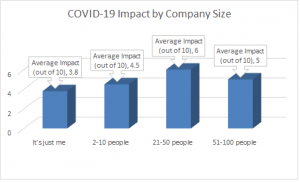Chưa có sản phẩm trong giỏ hàng.
Bookkeeping
1 1: Define Managerial Accounting and Identify the Three Primary Responsibilities of Management Business LibreTexts

Overhead charges are calculated and allocated to come up with the actual cost related to the production of a product. These overhead expenses may include the number of goods produced or other drivers related to the production, such as the square foot of the facility. Along with overhead costs, managerial accountants use direct costs to assess the cost of goods sold and inventory that may be in different stages of production. The job of a managerial accountant is to provide key insights that help a company’s management team make many of its business decisions. They provide and analyze relevant financial and statistical data to be used in guiding the decision-makers of the company. Aside from just crunching the numbers, managerial accountants also help companies choose and manage investments, as well as offer advice on financial decisions like budgeting.
Cash Flow Analysis

The approach can be useful for small businesses to provide a holistic evaluation of performance for employees and managers. By comparing budgets with actual results, managers managerial accounting and small business owners can assess if the employees are performing accordingly. It also lets them see if business goals are being met with resource efficiency in mind.
How Managerial Accounting Helps in Decision Making?

Marginal costing also helps businesses determine the best use of raw materials and the optimal sales mix for products. Managerial accounting statements, on the other hand, are presented at any period of time that is convenient for the productive management of a business. They may be fixed over a period of time but this fixed period is entirely flexible and comes at different times and forms within a month.
Accounting managers
- Within managerial accounting, several methods may be used to manage an organization’s finances.
- It aims at presenting external stakeholders with information about the financial health of the company.
- The positive or negative deviations from a budget also referred to as budget-to-actual variances, are analyzed in order to make appropriate changes going forward.
- During his time working in investment banking, tech startups, and industry-leading companies he gained extensive knowledge in using different software tools to optimize business processes.
- It means diligently managing relationships and resources so that the assets and reputation of the organization are protected.
Management Accounting contributes to business growth by providing insights into the company’s financial performance, identifying growth opportunities, and evaluating potential investment projects. It helps in formulating strategic plans to expand the business and gain a competitive advantage. They work closely with managers to prepare budgets and monitor actual performance against budgeted targets. https://www.bookstime.com/articles/managerial-accounting Additionally, they identify areas of cost overruns and recommend cost control measures. ABC determines cost via activities involved in the production procedure and their respective resources. This approach is more accurate in measurable cost drivers compared to costing based on volume, helping thus managers make better decisions such as pricing, product mixes, and resource allocation.
Do Managerial Accountants Need to Follow GAAP?
The plan for the first year was to increase market share by selling the company’s products in \(10\) percent more stores in the states in which the company already operates. From a managerial accounting perspective, planning involves determining steps or actions to meet the strategic or other goals of the company. For example, Daryn’s Dairy, a major producer of organic dairy products in the Midwest, has made increasing the market share of its products one of its strategic goals.

Although none of these individuals is given the title of manager, they need information to help provide management with the information necessary to make decisions to move the company forward with its strategic plan. Financial leverage metrics analyze and determine the amount of borrowed capital that should be used to purchase assets to provide the maximum return on investment. This method provides transparency to key stakeholders so that they can see where the money goes and why. Financial professionals typically use reports like balance sheets and debt-to-equity ratios to help companies determine borrowed capital amounts. The three main functions of managerial accounting are analysis, forecasting, and reporting. Managerial accounting is useful for companies to track and craft spending budgets, reduce costs, project sales figures, and manage cash flows, among other tasks.
Comparison of Financial and Management Accounting
The major purpose of Management Accounting is to lay out timely and accurate information to support decision-making processes. By presenting relevant data and insights, Management Accounting empowers managers to make informed decision that drive the organisation towards its objectives. Management accountants are responsible for collecting and analysing financial and non-financial data from various sources within the organisation.
Marginal Costing
- Accounting is an important function that every business, irrespective of its size, should pay maximum attention to.
- Appropriate financial planning helps a company to easily determine all its future needs.
- The benefits for your company will depend on its size and industry and individual managers’ practices and preferences.
- The central document for the financial aspect of business planning is the master budget.
- This information helps organizations better understand how well they adhere to set budgets and make changes if needed.
- Calculating inventory turnover can help businesses make better decisions on pricing, manufacturing, marketing, and purchasing new inventory.
A performance report provides information about the outcome of an activity or the work of an individual. It compares the initial plan set out by a company with the current state of affairs, determining if business goals are being fulfilled or not. Forecasting and trend analysis work together in making financial planning easier and more accurate. Financial planning, accordingly, acts as one of the primary techniques of managerial accounting.
- Budgets or budget managerial reports are reports on which other managerial accounting reports and activities are based.
- For small businesses, knowing your variable vs fixed costs is key to gaining control over them.
- An accounts receivable aging report categorizes AR invoices by the length of time they have been outstanding.
- Aside from just crunching the numbers, managerial accountants also help companies choose and manage investments, as well as offer advice on financial decisions like budgeting.
- Other managerial reports that are vital to every business include order information reports, project reports, competitor analysis and many other similar reports.





